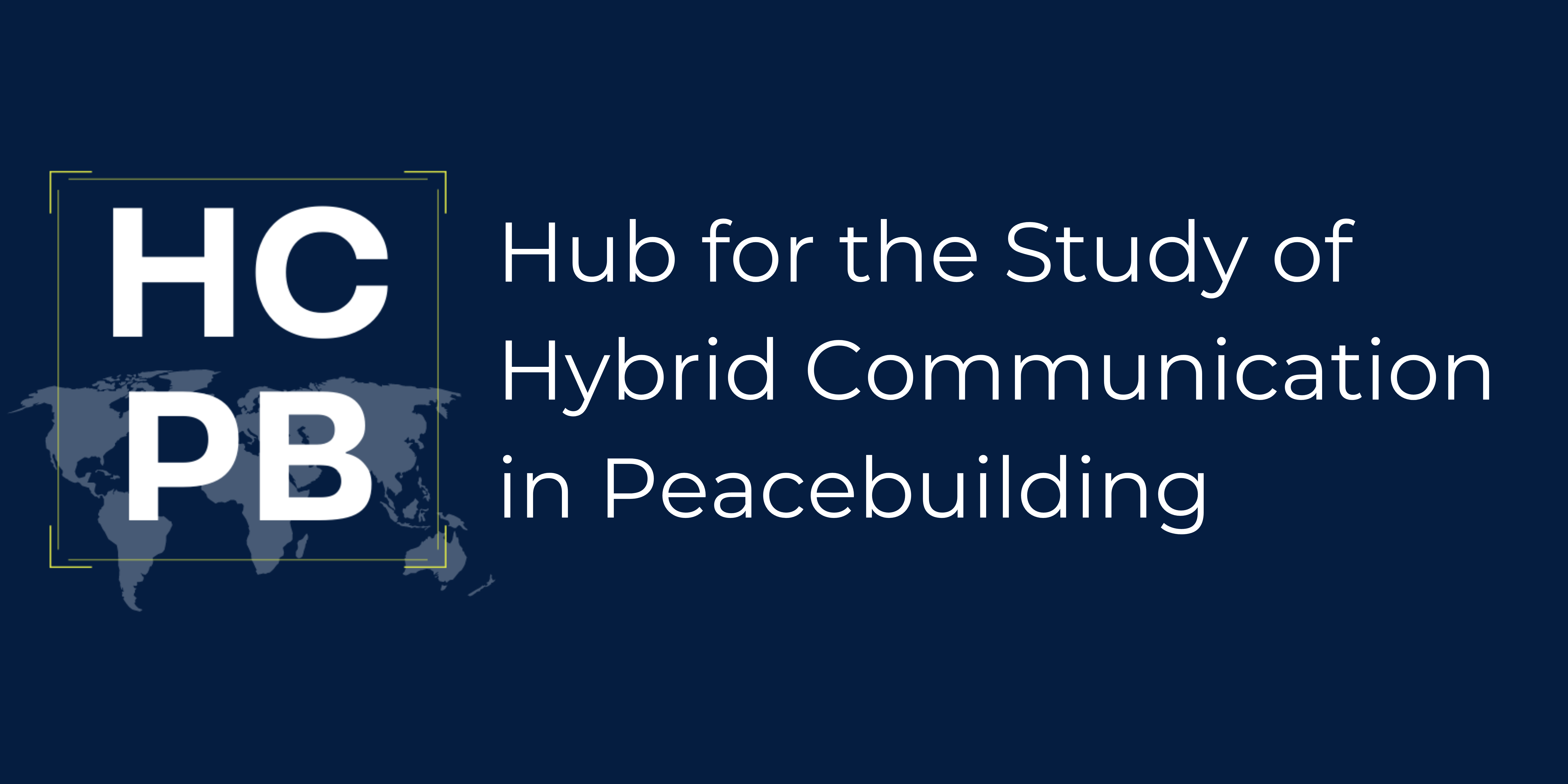Official Narratives, Protracted Conflicts: The Use of Language and Its Interpretation in Peacebuilding – A Little Survey on the Case of Cyprus
by Hakan Karahasan (hakan.karahasan@neu.edu.tr)
Can one argue that conflict occurs because there is contact between groups but no understanding? To put it differently, that conflicts take place because of misunderstandings? Can one argue that Covid-19 is influencing peacebuilding negatively because people have less physical contact with each other than ever before? Is there a relationship between face-to-face contact and online interaction when it comes to peacebuilding?
Regarding contact and how official narratives and discourses influence peacebuilding, one can give Cyprus as an example because of the protracted conflict. As it is known, the Cyprus issue has been occupying the international community for years. Started in the mid-50s, the issue is being told differently, depending on which source(s) narrating the story: one version says that it started when the majority of the Greek Cypriots supported the armed struggle initiative as an ‘anti-colonial struggle’ against the British rule. However, probably it was the only anti-colonial struggle in the world with the motive to unite the island with another country, Greece. The other major community, Turkish Cypriots reacted to this in the same way with a difference: Turkish Cypriots insisted that if the island will be given, it must be Turkey because before the British came over, it belonged to the Ottomans and hence the Ottomans rented the island to the British Empire back then.
Then, especially after the mid-50s, official policies of both major communities (Greek and Turkish Cypriots) revolved around the policies of their respected ‘motherlands.’ Interestingly, both communities’ official policy was one way or another uniting the island or a part of it with their ‘motherlands.’ However, since the beginning, this has been one of the main issues because both sides excluded the other and did not let any space for dialogue. In other words, what has been lacking in the official discourses of both sides are (still) that there is almost no space for the other. Even if so, this space has been used to show how bad the other community is. One can see the reflection of this view in history textbooks. In the Cyprus history textbooks that were in use in the Turkish Cypriot curricula from 1974 till 2004, one can see that lots of examples were given just to legitimise how bad Greek Cypriots were and how Turkish Cypriots were a part of ‘mainland’ Turkey. This notion has changed and the textbooks were revised when there was a big change in the Turkish Cypriot political atmosphere.[1] Between 2004-2009, Cyprus history textbooks that were in use were Cyprus-centred, considered Cyprus as the mainland, focused mostly on cultural history and common elements of the two communities and tried to show issues with a broader perspective, hence with the history of that time. However, what was lacking in those textbooks were, because it was the first attempt to eliminate nationalist elements in the textbooks, writers did not touch upon controversial issues much.[2]
Regarding textbooks and whether they contribute to peacebuilding or not has been been the source of a significant debate with differing views. As Zvi Bekerman (2010) claims, “Moreover, building on Umberto Eco’s dictum that ‘Texts are lazy machines that ask someone to do part of their job’ we assume textbooks to be lazy tools in need of teachers and students to do some type of (educational/learning) job for them to become active in any meaning-making process” (p. 9). The Cyprus case is a good example that even though there was a good intention during the period 2004-2009, this was not enough since the initiative was, mostly, from top to down. Here, the significance of contact comes into being because especially in conflict areas, conflict continues. After all, parties have either no dialogue at all or the ‘dialogue’ they think is not dialogue but a monologue. The situation is more like the lyrics of “The Sound of Silence” by Paul Simon and Art Garfunkel: “People talking without speaking / People hearing without listening.” Dialogue is important because members of the groups consider each other as equal and that is the beginning of a change that may lead towards the path of peacebuilding.
Contact, in that sense, is significant because Allport (1954) states that “… bringing members of conflicting groups together for face-to-face contact would reduce prejudice, which is then expected to create positive community relations between the groups” (Yucel & Psaltis, 2019, p. 3). Even though it is very important to bring members of the conflict groups and let them create a dialogue can be considered as a big attempt towards understanding the and seeing the other as a human being like one’s own group, mostly it is an individual level and without the support of the general public or official policies and discourses, it is inadequate to change to status quo. That is where the significance of media comes in. If mainstream media are not using a language of peace but secessionist, then the result would be like Cyprus. Like Cyprus means, there will be changes in different periods but the status quo will remain. On both sides of the divide, the pre and post-Annan Plan period show that as long as mainstream media and the majority are not using and/or supporting the language of peace, change may happen but is taking so much time and in the end, people may take the situation for granted.[3]
To put it all together, peacebuilding in protracted conflicts has different facets: even though thanks to new media technologies there are gaps that can be used as a way to overcome the stereotypes create the space for contact and dialogue that would pave the way for reconciliation, in reality, the same tools that can be used for maintaining the status quo. The Cyprus case is one of the examples that shows that the use of language and its interpretation in peacebuilding, mainstream media and education, together with ordinary language is vital for creating the environment. Once again, as it is known, peacebuilding won’t happen overnight and that it is not something that can be tweeted. Instead, it needs time, lots of effort, energy, patience and sometimes years. Only then, with a new language that is not based on separation but dialogue, peace can be built. As Bianchi (2010) says, “il dialogo non ha come fine il consenso ma un reciproco progresso, un avanzare insieme [the dialogue does not end with a consensus but reciprocal progress that we move forward altogether] (p. 14, my translation).
[1] For more information regarding this change, see Beyidoğlu-Önen et. al. (2010). Re-Writing History Textbooks: History Education – As a Tool for Polarisation or Reconciliation? pp. 117-123.
[2] More information regarding textbooks revision in the North can be found in several works. Especially see the references of Beyidoğlu-Önen et. al. (2010) and Karahasan & Beyidoğlu (2019).
[3] One of the recent accounts on this can be read from Ioannou, G. (2020). The Normalisation of Cyprus’ Partition among Greek Cypriots: Political Economy and Political Culture in a Divided Society. Palgrave Macmillan
References
Beyidoğlu-Önen et. al. (2010). Re-Writing History Textbooks: History Education – As a Tool for Polarisation or Reconciliation? Nicosia: POST-Research Institute.
Bianchi, E. (2010). L’altro siamo noi. Torino: Einaudi.
Karahasan H., & Beyidoglu Onen M. (2019). Northern Cyprus. In: Cajani L., Lässig S., Repoussi M. (eds) The Palgrave Handbook of Conflict and History Education in the Post-Cold War Era. Palgrave Macmillan, Cham. https://doi.org/10.1007/978-3-030-05722-0_32.
Papadakis, Y. (2008). History Education in Divided Cyprus: A Comparison of Greek Cypriot and Turkish Cypriot Schoolbooks on the ‘History of Cyprus’. Nicosia: PRIO Cyprus Centre. Retrieved from the World Wide Web: https://www.prio.org/utility/DownloadFile.ashx?id=457&type=publicationfile.
Yucel, D., & Psaltis, C. (2020). Intergroup contact and willingness for renewed cohabitation in Cyprus: Exploring the mediating and moderating mechanisms. Group Processes & Intergroup Relations, 23(4), 578–597. https://doi.org/10.1177/1368430219845053.
[1] For more information regarding this change, see Beyidoğlu-Önen et. al. (2010). Re-Writing History Textbooks: History Education – As a Tool for Polarisation or Reconciliation? pp. 117-123.
[2] More information regarding textbooks revision in the North can be found in several works. Especially see the references of Beyidoğlu-Önen et. al. (2010) and Karahasan & Beyidoğlu (2019).
[3] One of the recent accounts on this can be read from Ioannou, G. (2020). The Normalisation of Cyprus’ Partition among Greek Cypriots: Political Economy and Political Culture in a Divided Society. Palgrave Macmillan

